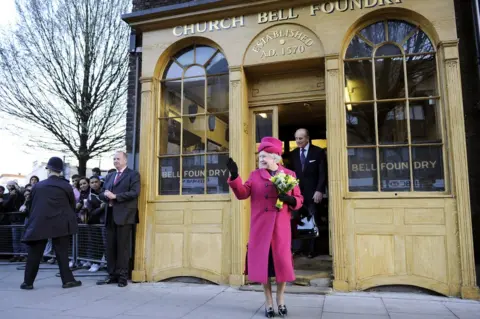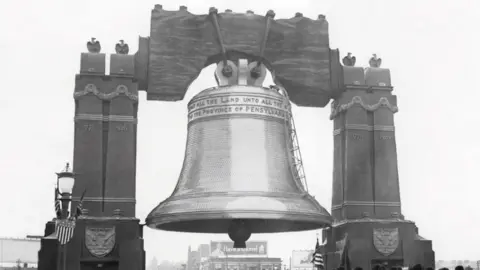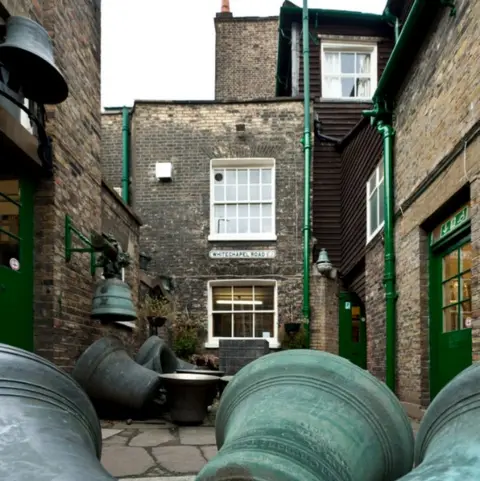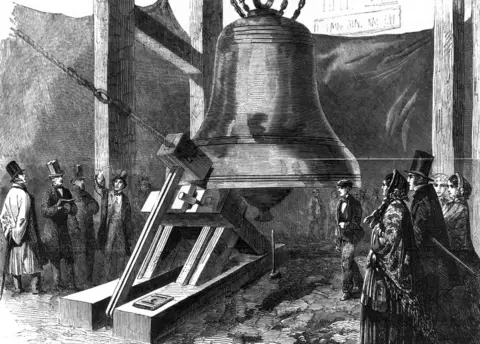Campaigners call for Whitechapel Bell Foundry to re-open
 Getty Images
Getty ImagesMembers of the art world have spoken out against plans to turn a historic bell foundry, where Big Ben was cast, into a boutique hotel.
Proposals to change the Whitechapel Bell Foundry in east London into a 108-room hotel, artist space and workshop were submitted earlier this year.
But campaigners, including V&A director Dr Tristram Hunt and Sir Antony Gormley, have backed a bid to return it to a fully working foundry.
 Getty Images
Getty ImagesThe foundry was Britain's oldest manufacturing company, having started in 1570.
Items forged also include Philadelphia's Liberty Bell.
The buildings were bought by US developer Raycliff. It said its application "sustains these amazing buildings and continues the atmosphere of craft and creation," the Local Democracy Reporting Service reports.
The plan would see the original Grade II listed foundry building becoming a workshop, public cafe and artist space, with the hotel replacing a 1980s extension at the back of the site.
 Getty Images
Getty ImagesBut a rival bid by the United Kingdom Historic Building Preservation Trust (UKHBP), which wants to buy back the buildings and maintain them as a working foundry, is being backed by campaigners.
Dr Hunt said the foundry needed to be kept "to enrich the cultural presence and attract national, regional and international interest".
Art historian Dan Cruickshank, who is also part of the campaign, called it "a landmark" which deserved "the highest level of protection".
 Getty Images
Getty ImagesThe hotel scheme designers 31/34 Architects said the project "has been assembled with great care", and a small working foundry would still exist on the site as a manufacturing firm had agreed to make hand bells there.
However, UKHBP trustee Stephen Clark said 90% of the original business would disappear under the plan which he described as "unthinkable."
"We have a viable and profitable plan to keep a working foundry on the site," he said.
